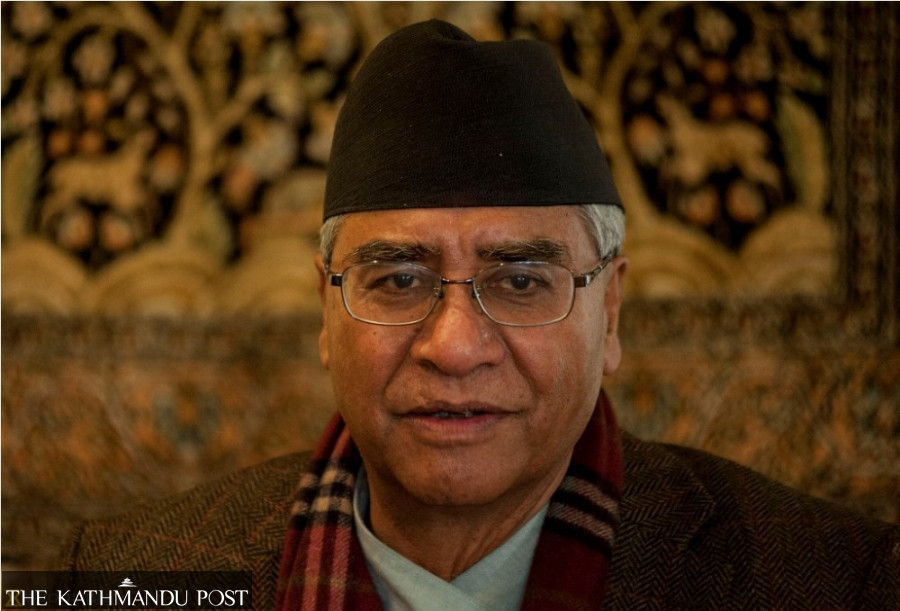Editorial
Take it easy
Dissent and debate are quintessential elements of democracy.
When Prime Minister Sher Bahadur Deuba last month brought the ordinance to amend laws to ease the split of political parties, the Post had said that when it comes to committing crimes against democracy, Oli is Deuba, and Deuba is Oli. At the Post, we like to be proven wrong once in a while. We like to be told that our scepticism about Deuba's inherent tendency to follow in the footsteps of his predecessor was ill-founded, and that the accidental prime minister of the coalition government is really a champion of democracy. But Deuba is pretty much a uni-dimensional character; he does not let you change your opinion about him.
And so, to follow in Oli's footsteps, the Deuba government has, in a span of three days, released two statements warning of actions over activities against "friendly nations". On Sunday, the Ministry of Home Affairs decreed that its attention had been drawn to protests, sloganeering and effigy burning against the prime minister of a neighbouring country. Although the ministry stopped short of divulging any details about who it was alluding to, it was clear that the unnamed prime minister of the "friendly" nation that it was worried about was Indian Prime Minister Narendra Modi. "The ministry has taken serious objection to such activities," the ministry said, vowing to punish the culprits.
Earlier, on Friday, the ministry had issued another statement, warning people not to make any negative comments against development projects running with the support of friendly nations, employees of such projects, foreign nationals, and their properties. It is as if the Deuba government is in no mood to let the people realise that this is a new government that came to power with the promise of undoing the undemocratic acts of the Oli government. The way it is curbing dissent as a pre-emptive measure to ensure that its "friends" in foreign governments are not infuriated with it, it gets as clear as ever that the Deuba government is unsure about its legitimacy and independence as a representative of the people of a sovereign nation.
As the government falters in bringing India to the talks table on the disappearance of Jaya Singh Dhami, a Darchula youth who reportedly fell into the Mahakali in the presence of Indian security personnel while using an improvised cable crossing—it was only on Monday that it sent separate diplomatic notes to the southern neighbour on the Dhami case as well as the unauthorised air raid over Nepali territory last week—it is only natural for the public to speak up. And it is only natural for the public to seek the response of the government and various other stakeholders on the Millennium Challenge Corporation as there is little clarity as to whether the aid project is detrimental to Nepal's national security or not. If the public has been organising protests peacefully seeking answers to their questions, the only way in which the government should respond is by answering their questions.
The Deuba government has no business becoming insecure about what the "friendly" nations will say if the Nepali public speaks up against India or the United States of America. After all, these two democratic giants champion free speech and should know all too well that dissent and debate are quintessential parts of democracy. And the Deuba government, rather than spending its precious time in image building in front of international friends, should take up some real work.




 13.12°C Kathmandu
13.12°C Kathmandu














